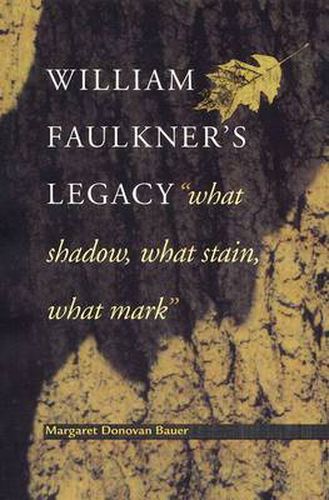Readings Newsletter
Become a Readings Member to make your shopping experience even easier.
Sign in or sign up for free!
You’re not far away from qualifying for FREE standard shipping within Australia
You’ve qualified for FREE standard shipping within Australia
The cart is loading…






This title is printed to order. This book may have been self-published. If so, we cannot guarantee the quality of the content. In the main most books will have gone through the editing process however some may not. We therefore suggest that you be aware of this before ordering this book. If in doubt check either the author or publisher’s details as we are unable to accept any returns unless they are faulty. Please contact us if you have any questions.
This fresh approach to Faulkner’s canon examines his fiction in relation to other writers of the South whose works echo but also supplement, revise, respond to, and even correct his depictions of the South. Whether working at the same time or two generations after Faulkner, these writers tackle similar issues - the liberal white male, the southern lady, African Americans, and the nonaristocrat. From Ellen Glasgow and Zora Neale Hurston to Ernest Gaines, Toni Morrison, and new writers like Elizabeth Dewberry and Tim Gautreaux, many southern writers have used the same tropes, plots, and archetypes as Faulkner, to different effect. Among the most important contributions of this book is its reexamination of Faulkner’s white male liberal prototype, who feels powerless to effect change and relieve the oppression of African Americans and women in the South. Viewing such a character from the point of view of the oppressed illuminates the cowardice of these privileged men, who were previously lauded for their liberal consciousness or sympathized with for their frustration over their impotence.
$9.00 standard shipping within Australia
FREE standard shipping within Australia for orders over $100.00
Express & International shipping calculated at checkout
This title is printed to order. This book may have been self-published. If so, we cannot guarantee the quality of the content. In the main most books will have gone through the editing process however some may not. We therefore suggest that you be aware of this before ordering this book. If in doubt check either the author or publisher’s details as we are unable to accept any returns unless they are faulty. Please contact us if you have any questions.
This fresh approach to Faulkner’s canon examines his fiction in relation to other writers of the South whose works echo but also supplement, revise, respond to, and even correct his depictions of the South. Whether working at the same time or two generations after Faulkner, these writers tackle similar issues - the liberal white male, the southern lady, African Americans, and the nonaristocrat. From Ellen Glasgow and Zora Neale Hurston to Ernest Gaines, Toni Morrison, and new writers like Elizabeth Dewberry and Tim Gautreaux, many southern writers have used the same tropes, plots, and archetypes as Faulkner, to different effect. Among the most important contributions of this book is its reexamination of Faulkner’s white male liberal prototype, who feels powerless to effect change and relieve the oppression of African Americans and women in the South. Viewing such a character from the point of view of the oppressed illuminates the cowardice of these privileged men, who were previously lauded for their liberal consciousness or sympathized with for their frustration over their impotence.